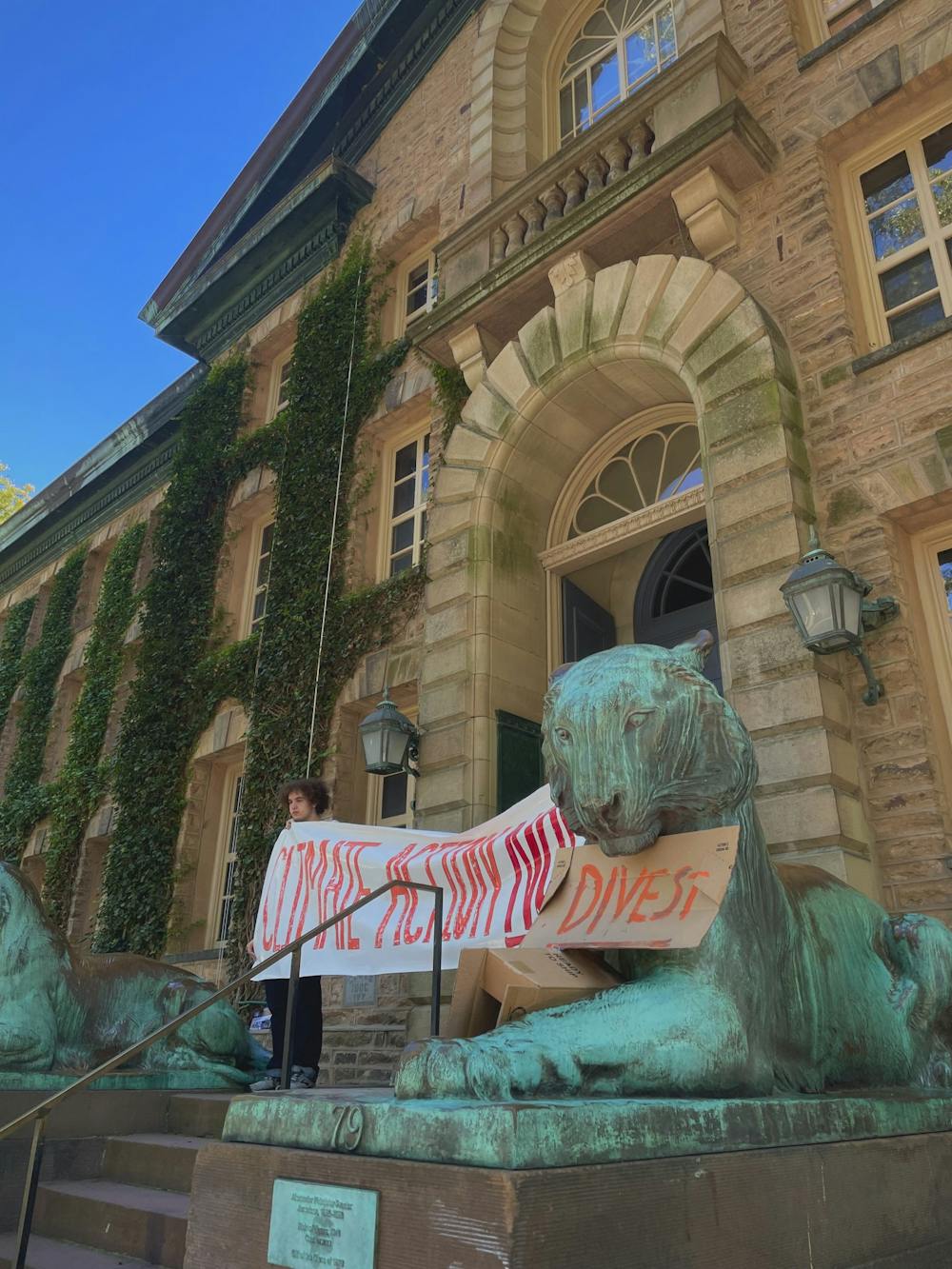On Sept. 29, the University announced that its Board of Trustees voted to dissociate from 90 companies in the “thermal coal and tar sands segments of the fossil fuel industry,” which included ExxonMobil. Thermal coal and tar sands oil were identified by a “panel of expert faculty” as producing especially high carbon dioxide emissions compared to other fossil fuels.
The University also announced last week that the Princeton University Investment Company (PRINCO) will “eliminate all holdings in publicly traded fossil fuel companies” and “ensure that the endowment does not benefit from any future exposure to those companies” as part of the Board’s “commitment to achieving a net-zero endowment portfolio over time.”
This decision comes after almost a decade of student and alumni activism, largely led by the group Divest Princeton.
In a recent press release, Divest Princeton called the announcement “a huge deal for Princeton and for the world.”
“We at Divest Princeton view this as a necessary step, especially in light of the severe climate impacts currently faced all over the world, especially during this hurricane season,” the organization said in the statement.
Sean Bradley ’24, a student in the School of Public and International Affairs, stressed how the policy change will help the University live up to its motto.
“To truly be in the service of humanity, Princeton must not fund fossil fuel companies that spread disinformation and pollute our planet,” Bradley wrote to The Daily Princetonian.
For other students, such as James Daniels ’26, the announcement came as a disappointment.

“Regardless of the shortcomings of fossil fuels, the University has a fiduciary obligation to generate the greatest return on investment, not to play politics with the endowment,” Daniels wrote in a message to the ‘Prince.’
He raised concerns about potentially diminished returns on investment for PRINCO’s portfolio after cutting fossil fuel holdings. Daniels said the dissociation move is “unwise and eliminates sound investment options for the fund’s managers.”
On the contrary, Bradley viewed divestment from fossil fuels as a profitable investment strategy.
“Fossil fuels are, at this point, more expensive than renewable energy,” he said. “I think that we will begin to see that continuing to hold those investments is a poor financial choice.”

Other students argued that simply dissociating from fossil fuel companies does not go far enough in supporting climate activism.
In an interview with the ‘Prince,’ Wyatt Browne ’26 noted that “in terms of real change, it’s more impactful for the University to actively invest in green energy or sustainable industry than passively withdraw money.”
As of May 2022, the University’s endowment held a 4.5 percent exposure to the fossil fuel industry, with 0.03 percent directly invested in the industry, according to Princeton Alumni Weekly.
Another contentious issue was the University’s decision to stop accepting research funding from the companies listed for dissociation, such as ExxonMobil. The oil and gas giant has held a research partnership with the University’s Andlinger Center for Energy and the Environment since 2015.
“We’re really lucky to be able to [cut research funding from fossil fuel corporations] because of our substantial endowment. I think it is a lot of progress,” Claire Goldberg ’26 told the ‘Prince.’
Still, some believe that the University’s dissociation was not comprehensive enough.
“It is regrettable that Shell and BP, two of the largest fossil fuel companies in the world, responsible for devastating and ongoing damage, are not on the list,” Divest’s press release stated.
Divest Princeton also cited two instances of the University’s recent financial partnerships with these corporations — Shell’s 2021 contributions to a startup spun out of Princeton in 2019 and BP’s funding of the Carbon Mitigation Institute.
Like the student organizers with Divest Princeton, Bradley supported an end to research funding by fossil fuel corporations — even if the money financed clean energy research — such as the case with the ExxonMobil partnership.
“Fossil fuel companies who invest in our clean energy research while continuing to pollute our planet are simply trying to improve their appearance and greenwash their legacies,” he said.
To make up for funding lost from dissociation, the University also announced the creation of “a new fund to support energy research at Princeton.”
Nate Howard ’25, a student coordinator for Divest Princeton, said he has high expectations for the program.
“We’re excited that the alternative funding for the research from the University is clearly a program that can be built upon and expanded, and we hope to see it expand to replace all fossil fuel funding for research,” he wrote in a message to the ‘Prince.’
Howard is a contributing columnist for the ‘Prince.’
Going forward, some students hope to see the University broaden its dissociation policy.
“I think that limiting the dissociation criteria to the coal and tar sands industry limited the effectiveness of [the policy]. I believe that our endowment portfolio should be clean of any and all fossil fuel interests,” said Bradley.
Daniels, on the other hand, believes that further limits on the University’s investments would be unfeasible.
“If every political movement on campus had their way, there would be nothing left to invest in,” he wrote.
As for Divest Princeton, the group plans to continue advocating for complete dissociation from the fossil fuel industry. They also seek to implement “measures to ensure transparency in investments and adequate enforcement of the new divestment measures” along with “responsible, non-extractive reinvestment of the divested assets, particularly in climate resilience in frontline communities.”
Bradley also took time to reflect on the role Divest played in bringing about the policy change.
“Without student activism, we would have remained at the status quo. The decade of activism that the University is trying to ignore has brought us to today and I am incredibly grateful for all who were involved,” Bradley said.
The University has not acknowledged Divest Princeton in any of its public statements.
Cole Strupp is a news contributor from Asbury Park, N.J. He can be reached atcolestrupp@princeton.edu or on Instagram @colestrupp.








